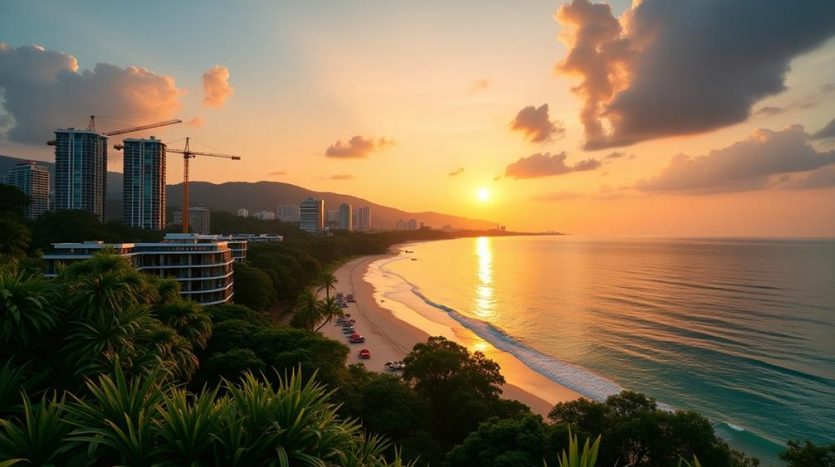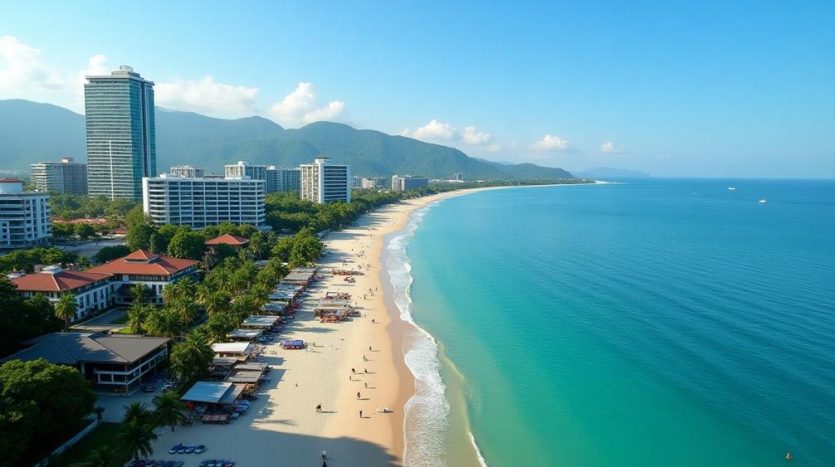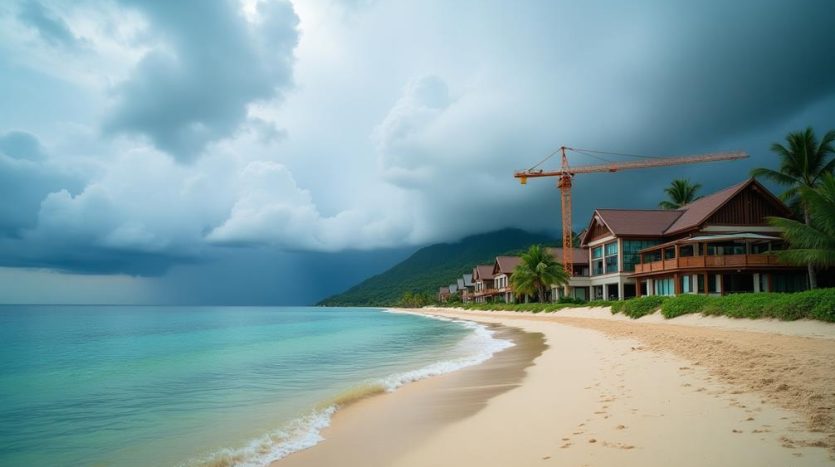Is Koh Samui a Good Place to Invest?
Imagine owning a slice of paradise where property values appreciate by 5-7% annually. Koh Samui, with its thriving tourism sector and appealing real estate market, might be just the right place for your next investment. However, the island's intricate property laws and regulatory hurdles can be intimidating. Consulting local experts is essential to maneuvering these challenges. Could Koh Samui's natural beauty and economic benefits outweigh the risks? Let's explore whether this investment opportunity aligns with your financial goals and risk appetite.
Key Takeaways
- Property values in Koh Samui appreciate annually by 5-7%, indicating a strong real estate market.
- High rental market occupancy rates, especially during peak seasons, offer lucrative income opportunities.
- Significant infrastructure improvements enhance property value and accessibility.
- Thai government incentives, such as tax exemptions and reduced import duties, benefit investors.
- The island's growing tourism industry and eco-friendly hospitality sector attract affluent, eco-conscious visitors.
Real Estate Market
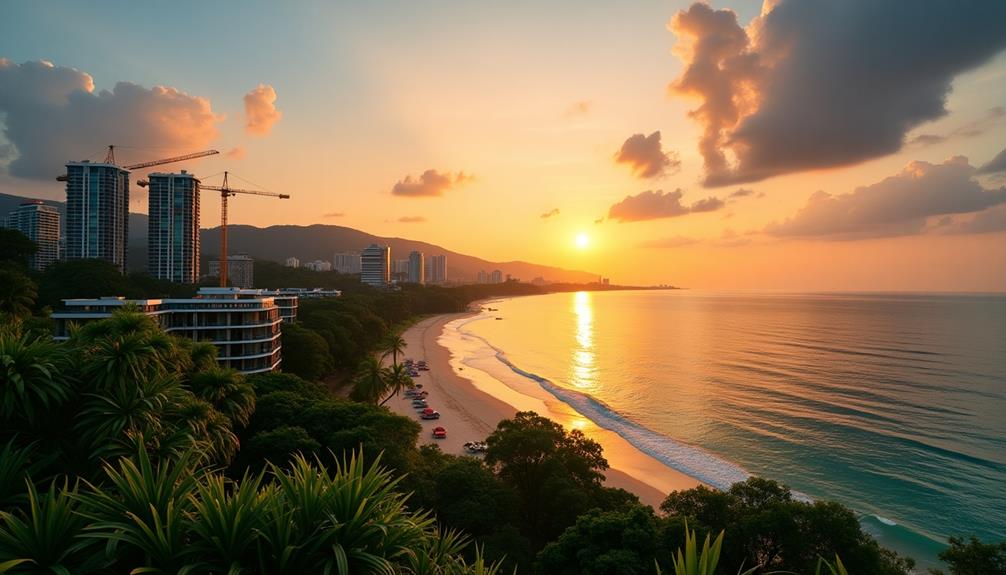
When evaluating Koh Samui as an investment opportunity, the real estate market stands out as a significant consideration. You'll find a variety of property types, from luxurious beachfront villas to modest inland homes. The market trends show a steady increase in both demand and prices, making it a lucrative option. According to recent data, property values have appreciated by about 5-7% annually over the past five years. That's better than your savings account, right?
You might wonder if this is just a bubble waiting to burst. However, the market trends indicate a solid foundation, driven by both local and foreign investment. The influx of expatriates and retirees has created a sustained demand for high-end property types.
Additionally, infrastructure developments like improved road networks and utilities have positively impacted property values. Analyzing property price trends is essential for making informed investment decisions, as fluctuations can be influenced by both global and local factors.
Now, if you're thinking about short-term gains, you'll love this: the rental market is booming. Properties in prime locations boast occupancy rates of up to 80% during peak season.
Tourism and Hospitality
The thriving real estate market in Koh Samui is closely linked to its robust tourism and hospitality sector. You can't ignore the fact that the island attracts over 2 million visitors annually, making it a hotspot for sustainable tourism.
The local authorities are keen on protecting Koh Samui's natural charm, ensuring that development doesn't overshadow its pristine beaches and lush landscapes. This focus on sustainability is a huge plus for investors looking for long-term growth. The island offers various local amenities like well-stocked grocery stores and exceptional healthcare facilities, which add to its attractiveness.
Luxury accommodations are a significant draw. High-end resorts and villas dot the coastline, offering everything from private pools to personal chefs. These premium stays contribute enormously to the local economy, with occupancy rates often exceeding 80% during peak seasons. If you're thinking about investing, these stats should make your eyes light up.
Moreover, the hospitality sector here is evolving. Emphasis on eco-friendly practices like solar panels and waste management systems is becoming the norm, aligning with global trends.
The blend of luxury and sustainability offers a unique selling point that attracts affluent, eco-conscious tourists. So, if you're eyeing Koh Samui for investment, you're looking at a market that's not just thriving but also evolving sustainably.
Economic Policies
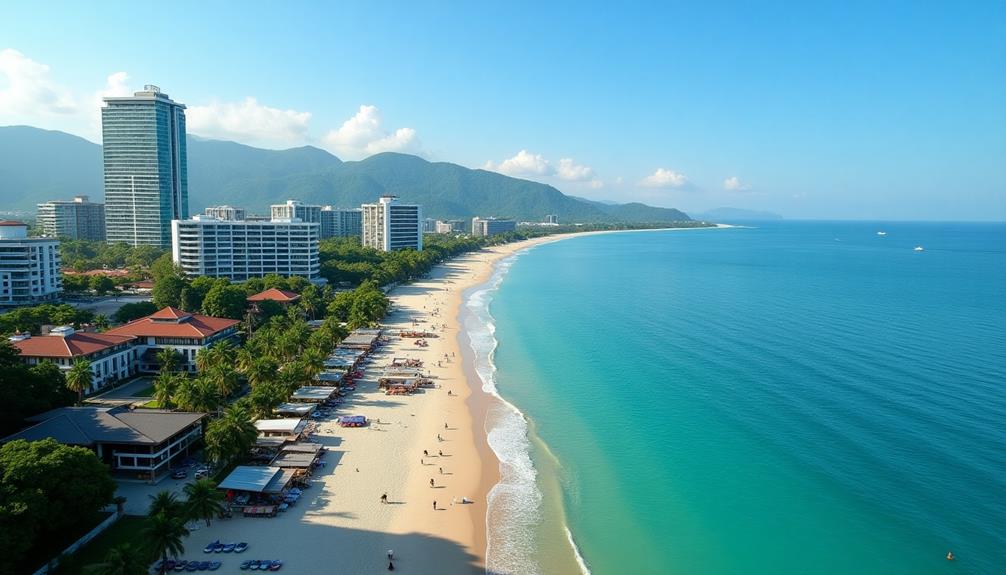
Koh Samui's economic policies play a pivotal role in shaping its investment landscape. You're probably wondering if the island's laid-back vibe extends to its government regulations and investment incentives. Well, let's crunch some numbers and explore the data.
First, the Thai government offers enticing investment incentives. You've got tax exemptions, reduced import duties, and even land ownership rights for certain business activities. These goodies are designed to make your wallet feel lighter and your business prospects brighter.
It's also worth noting that the cost of living, including affordable healthcare, makes it easier for investors and their families to settle on the island.
But hold on, it's not all sunshine and coconut water. Government regulations can be a mixed bag. Thailand's Board of Investment (BOI) sets stringent rules for foreign investors. For instance, you need to meet specific capital requirements and might face restrictions in certain industries.
It's like trying to navigate a tropical jungle—exciting, but you better have a good map.
On the flip side, Koh Samui's local authorities are keen to attract sustainable projects. They prioritize green initiatives and eco-friendly businesses, which is great if you're planning on opening a solar-powered banana stand.
Just make sure you're compliant with local ordinances to avoid any bureaucratic monkey business.
Infrastructure Developments
Ever wondered how Koh Samui's infrastructure developments stack up against other investment hotspots? Let's explore the nitty-gritty, shall we?
Koh Samui has seen significant transportation upgrades over the past decade. The island's main airport now handles over 1.5 million passengers annually, thanks to expanded runways and upgraded facilities. This makes it easier for tourists and potential investors to hop over without hassle.
On the ground, roads have been widened and modernized, reducing travel time between key areas. Public transport options, though still limited, are improving, with plans for more reliable bus services.
Utility improvements are equally impressive. Koh Samui has modernized its power grid, reducing outages and improving reliability. Water supply systems have also been enhanced, ensuring that both residents and businesses have consistent access.
These infrastructure developments signal a forward-thinking approach, making Koh Samui competitive with other investment hotspots like Phuket and Bali.
While the island isn't without its quirks—who doesn't love a surprise power cut?—it's clear that significant strides have been made.
Risks and Challenges
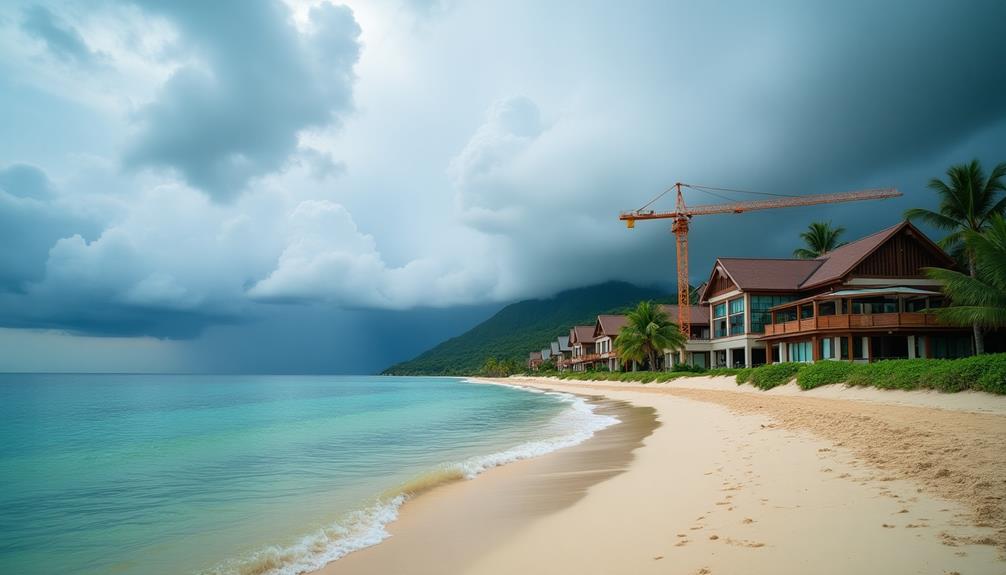
Maneuvering the investment landscape of Koh Samui isn't without its hurdles. The regulatory environment can be as unpredictable as a tropical storm. Thailand's property laws are complex and often favor locals over foreign investors.
You've got to wade through a sea of paperwork and legal jargon just to figure out if your investment is even feasible. Consulting a local real estate lawyer is recommended for managing legal complexities and ensuring compliance with ownership ratios.
And let's not forget, what's legal today might be less so tomorrow—regulations can change without much notice.
Market volatility is another beast you'll have to tame. Koh Samui's real estate market can swing from boom to bust faster than you can say "beachfront property." Prices are influenced by everything from global economic trends to the number of tourists flocking to the island.
Just when you think you've got a handle on the market, an unexpected event—like a pandemic—can throw a wrench into your plans.
Don't let these challenges scare you off, though. They're more like the spicy kick in your Thai curry—a bit intimidating at first, but manageable if you know what you're doing.
Just make sure you've got a solid strategy and some antacids on hand.

